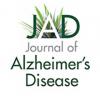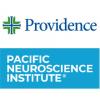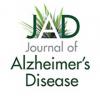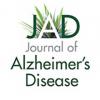8 January 2024
Journal of Alzheimer’s Disease Welcomes New Co-Editor-in-Chief Paula I. Moreira, PhD
The Journal of Alzheimer’s Disease (JAD), published by IOS Press, is pleased to announce the appointment of new co-Editor-in-Chief, Paula I. Moreira, PhD. Dr. Moreira joins Editor-in-Chief George Perry, PhD, and an eminent international editorial board who are dedicated to the continuing success of the world’s leading journal in Alzheimer’s research and treatment.
15 December 2023
New Study Shows Exercise Can Boost Brain Health
A fascinating link between regular exercise and better brain health has been revealed, according to an international study that included a team of clinical researchers from Pacific Neuroscience Institute’s Brain Health Center, located at Providence Saint John’s Health Center. The research, detailed in the paper "Exercise-Related Physical Activity Relates to Brain Volumes in 10,125 Individuals," was published this week in the Journal of Alzheimer’s Disease and shows being physically active is related to increased size of brain areas important for memory and learning.
4 December 2023
Diet has a major impact on risk of Alzheimer’s disease
In a detailed study, Diet’s Role in Modifying Risk of Alzheimer’s Disease: History and Present Understanding published in the Journal of Alzheimer’s Disease, we can finally see which diets are helpful in reducing the risk of developing Alzheimer’s disease. The role of diet in modifying the risk of Alzheimer’s disease is discussed in detail. Diets that are more plant based, like the Mediterranean diet and traditional diets in China, Japan, and India, are shown to reduce risk, especially when compared to the Western diet.
27 November 2023
Hearing Loss is Associated with Subtle Changes in the Brain
Hearing loss affects more than 60 percent of adults aged 70 and older in the United States and is known to be related to an increased risk of dementia. The reason for this association is not fully understood. To better understand the connection, a team of University of California San Diego and Kaiser Permanente Washington Health Research Institute researchers employed hearing tests and magnetic resonance imaging (MRI) to determine whether hearing impairment is associated with differences in specific brain regions.
9 November 2023
Sage Grows Research Portfolio by Acquiring IOS Press
Global independent academic publisher Sage has acquired IOS Press, an independent publisher founded in Amsterdam in 1987 that specializes in health, life, and computer sciences. With this move, Sage acquires nearly 100 journals and a frontlist of 70 plus books each year covering subjects such as neuroscience, medical informatics, cancer research, artificial intelligence (AI), data science, and the semantic web.
16 October 2023
Personalized Coaching Decreases Cognitive Decline in Early-Stage Alzheimer’s Disease Patients
Supplementing the standard of treatment for Alzheimer’s disease patients with personalized lifestyle coaching leads to less cognitive decline compared to standard of treatment alone, according to an ISB-led two-year study. The results were published in the Journal of Alzheimer’s Disease.
28 September 2023
Experts Present Pioneering Vision on Reducing Brain Disorders by 2050
A special supplement to the Journal of Alzheimer’s Disease, published by IOS Press, presents insights and new directions in both basic and clinical research into neurodegenerative diseases. Because by 2050, the number of people suffering from brain disorders is estimated to reach 155 million, now is the time to think innovatively to discover new pathways for future brain studies.
28 August 2023
Eat your vegetables to protect your brain
A new study published in the Journal of Alzheimer’s Disease by a Virginia Tech Carilion School of Medicine faculty member shows that brain levels of dietary lutein, zeaxanthin, lycopene, and vitamin E in those with Alzheimer’s disease are half those in normal brains. Higher dietary levels of lutein and zeaxanthin have been strongly linked to better cognitive functions and lower risk for dementia or Alzheimer’s disease.
24 August 2023
2023 JAD Editorial Board Update
To keep our JAD editors, authors, and readers informed of JAD's progress and development, the journal hereby shares the 2023 editorial update, which includes highlights such as the best-viewed papers of 2022, the most popular press releases, and journal statistics such as the turnaround times and submission rates.
21 August 2023
Several vaccines associated with reduced risk of Alzheimer’s disease in adults 65 and older
Prior vaccination against tetanus and diphtheria, with or without pertussis (Tdap/Td); herpes zoster (HZ), better known as shingles; and pneumococcus are all associated with a reduced risk for developing Alzheimer’s disease, according to new research from UTHealth Houston.















